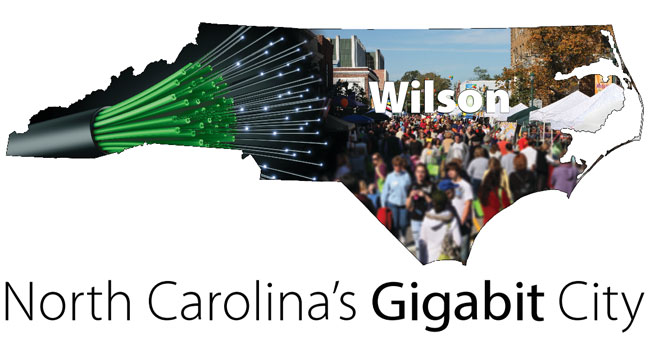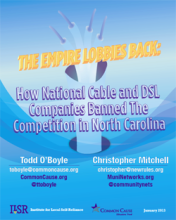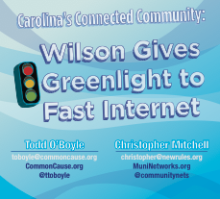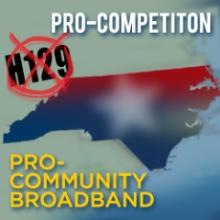First Gigabit Network in North Carolina: City of Wilson's Greenlight
In North Carolina, Wilson's Greenlight will begin offering gigabit residential services as early as July. Greenlight began offering FTTH service since 2008 to businesses and households and now provides affordable and reliable triple play.
Along the journey, Greenlight faced a playing field tilted in favor of incumbent providers, predatory behavior from those incumbents, and dangerous legislative barriers created by companies like Time Warner Cable and CenturyLink.
From the press release:
“In January, the Federal Communications Commission issued a challenge to communities to provide gigabit service by 2015, and we’re proud to answer that challenge now. We are excited to launch our gigabit service and allow our customers to be the first in the state to experience such high speed Internet access,” said Will Aycock, general manager of Greenlight. “Ultra-high speed Internet will help position Wilson for the future and will provide our businesses and residents with the tools they need to succeed.”

Greenlight currently serves approximately 6,000 customers in Wilson and provides service to schools throughout the larger county. The network provides free downtown Wi-Fi through the downtown area.






 Those pushing this bill have no idea what they are doing. They may gut the potential for full fiber-optic networks in the state as the rest of the world charges forward building these networks. They are defending the horse-and-buggy industry in the age of automobiles.
Listen for the North Carolina Chamber of Commerce weighing in against community networks, the only entities investing in the next-generation networks needed for the digital economy. The Chamber cares more about its high profile members (cable and phone companies) than the 99% of businesses in North Carolina that need the kind of broadband available in Wilson and Salisbury. These organizations should not be allowed to get away with pretending to represent business interests in the state.
Those pushing this bill have no idea what they are doing. They may gut the potential for full fiber-optic networks in the state as the rest of the world charges forward building these networks. They are defending the horse-and-buggy industry in the age of automobiles.
Listen for the North Carolina Chamber of Commerce weighing in against community networks, the only entities investing in the next-generation networks needed for the digital economy. The Chamber cares more about its high profile members (cable and phone companies) than the 99% of businesses in North Carolina that need the kind of broadband available in Wilson and Salisbury. These organizations should not be allowed to get away with pretending to represent business interests in the state.